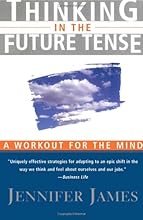Cultural Anthropologist, Author, Former Psychiatry Professor
Jennifer James Biography
Jennifer James is a cultural anthropologist, lecturer, writer, and commentator known for her innovative ideas and international work, which focuses on helping individuals navigate today's transitions. Her speeches and seminars address the dynamics of change and the development of thinking skills. She specializes in the cultural aspects of technological change and marketing intelligence.
James is a published author with titles that include "Windows," "Success is the Quality of Your Journey," and "Thinking in the Future Tense." She contributed a column to the Seattle Times for eighteen years and has hosted local radio and television programs, including two PBS specials, "Thinking in the Future Tense" and "A Workout for the Mind."
She holds a Master's Degree in history and psychology and a Doctorate in cultural anthropology. Prior to her public speaking career, she served as a professor of Psychiatry and Behavioral Sciences at the University of Washington Medical School for twelve years.
Contact a speaker booking agent to check availability on Jennifer James and other top speakers and celebrities.
Jennifer James Speaking Topics
-
The Adaptive Executive
One of the most difficult aspects of adapting to rapid change, particularly when it is accompanied by complex technology and multiplying data sources, is the ability to give up an old construct about the way things ought to be and develop a new one based on the current realities. Accepting a new version of reality, essentially telling a new story, requires cultural intelligence. Cultural intelligence is the ability to observe, learn, and understand our own culture as well as the culture of others. It is an essential skill in a diverse community and a global market.
There are four stages to adaptation: technology, economics, demographics, and culture. We adapt easily to new technology, we accommodate new economic structures, we welcome new workers, but we resist changing cultural beliefs. Culture is basically the beliefs we have about the "way things ought to be." Culture always lags behind technological, economic, and demographic shifts.
As we increasingly become "cyborgs," part technician and part human consciousness, successful adaptation requires changes in management and leadership. The new knowledge workers, the portfolio professionals, prefer to work as part of a diverse, empowered team with maximum independence and minimum management. They have different skills and a different character than any previous worker class.
Our current leadership assignment requires a remaking of our staff, our organizations, and ourselves into more civilized, responsible, and productive cyber forms. The key is the ability to think in new ways. The adaptive executive is future-oriented; he or she understands both the current business environment as well as what their organization's place in the local and global market is likely to be.
-
Thinking in the Future Tense
Every major system in America is in the process of a major shift. Major industries, in particular telecommunications, were hit first and healthcare soon followed. The political, legal, and academic systems are facing the same "rightsizing." Leadership in this new era requires the ability to think in new ways. Management requires the skill of thinking about thinking, knowing how you think and operate. This seminar will provide experience in eight thinking skills:
Perspective (seeing with new eyes) Awareness of Patterns (recognizing the future) Critical Thinking (understanding the social context) Response Time (the ability to change and help others change) Context (understanding the past to know the future) Effectiveness (doing more with less) New Forms of Intelligence (using the rest of your brain) Diversity I.Q. (profiting from diversity) Think of this seminar as a workout for your mind: a little brain aerobics, a blueprint for future success. You will leave energized and optimistic.





-
How do I book Jennifer James to speak at my event?
Our experienced booking agents have successfully helped clients around the world secure speakers like Jennifer James for speaking engagements, personal appearances, product endorsements, or corporate entertainment since 2002. Click the Check Availability button above and complete the form on this page to check availability for Jennifer James, or call our office at 1.800.698.2536 to discuss your upcoming event. One of our experienced agents will be happy to help you get speaking fee information and check availability for Jennifer James or any other speaker of your choice. -
What are the speaker fees for Jennifer James
Speaking fees for Jennifer James, or any other speakers and celebrities, are determined based on a number of factors and may change without notice. The estimated fees to book Jennifer James are $20,000 - $30,000 for live events and under $10,000 for virtual events. For the most current speaking fee to hire Jennifer James, click the Check Availability button above and complete the form on this page, or call our office at 1.800.698.2536 to speak directly with an experienced booking agent. -
What topics does Jennifer James speak about?
Jennifer James is a keynote speaker and industry expert whose speaking topics include Author, Business, Business Leadership, Change Management, College, Culture, Diversity & Inclusion, Education, Family & Parenting, Futurism, Human Resources, Literacy, Marketing, Non-Fiction Authors, Social Sciences, Technology, Women in Tech -
Where does Jennifer James travel from?
Jennifer James generally travels from Washington, USA, but can be booked for private corporate events, personal appearances, keynote speeches, or other performances. For more details, please contact an AAE Booking agent. -
Who is Jennifer James’s agent?
AAE Speakers Bureau has successfully booked keynote speakers like Jennifer James for clients worldwide since 2002. As a full-service speaker booking agency, we have access to virtually any speaker or celebrity in the world. Our agents are happy and able to submit an offer to the speaker or celebrity of your choice, letting you benefit from our reputation and long-standing relationships in the industry. Please click the Check Availability button above and complete the form on this page including the details of your event, or call our office at 1.800.698.2536, and one of our agents will assist you to book Jennifer James for your next private or corporate function. -
What is a full-service speaker booking agency?
AAE Speakers Bureau is a full-service speaker booking agency, meaning we can completely manage the speaker’s or celebrity’s engagement with your organization from the time of booking your speaker through the event’s completion. We provide all of the services you need to host Jennifer James or any other speaker of your choice, including offer negotiation, contractual assistance, accounting and billing, and event speaker travel and logistics services. When you book a speaker with us, we manage the process of hosting a speaker for you as an extension of your team. Our goal is to give our clients peace of mind and a best-in-class service experience when booking a speaker with us. -
Why is AAE Speakers Bureau different from other booking agencies?
If you’re looking for the best, unbiased speaker recommendations, paired with a top-notch customer service experience, you’re in the right place. At AAE Speakers Bureau, we exclusively represent the interests of our clients - professional organizations, companies, universities, and associations. We intentionally do not represent the speakers we feature or book. That is so we can present our clients with the broadest and best performing set of speaker options in the market today, and we can make these recommendations without any obligation to promote a specific speaker over another. This is why when our agents suggest a speaker for your event, you can be assured that they are of the highest quality with a history of proven success with our other clients.
Jennifer James is a keynote speaker and industry expert who speaks on a wide range of topics such as The Adaptive Executive, Thinking in the Future Tense, How to Change, How to Take Risks, The Human Face of Technological Change and Cultural Intelligence: Telling the New Story. The estimated speaking fee range to book Jennifer James for your event is $20,000 - $30,000. Jennifer James generally travels from WA, USA and can be booked for (private) corporate events, personal appearances, keynote speeches, or other performances. Similar motivational celebrity speakers are Linda Darling-Hammond, Erin Gruwell, Tonya Lewis Lee, John Zogby and Victoria Rowell. Contact All American Speakers for ratings, reviews, videos and information on scheduling Jennifer James for an upcoming live or virtual event.
This website is a resource for event professionals and strives to provide the most comprehensive catalog of thought leaders and industry experts to consider for speaking engagements. A listing or profile on this website does not imply an agency affiliation or endorsement by the talent.
All American Entertainment (AAE) exclusively represents the interests of talent buyers, and does not claim to be the agency or management for any speaker or artist on this site. AAE is a talent booking agency for paid events only. We do not handle requests for donation of time or media requests for interviews, and cannot provide celebrity contact information.
If you are the talent and wish to request a profile update or removal from our online directory, please submit a profile request form.




























